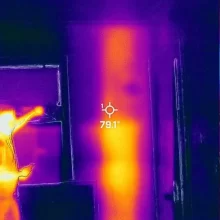23 Signs Of A Gifted Child
The post 23 Signs Of A Gifted Child appeared first on Healthy Holistic Living.
While gifted children have incredible potential for learning and creating, their giftedness is not always recognized. So how can you tell that you have a gifted child?
A child is considered gifted when they have abilities that are significantly above what is typical of students their age. Giftedness can manifest in a variety of areas, including intellectualism, art, creativity, leadership. It can also show up in specific academic fields like mathematics or language arts. (1)
Some gifted children are never identified because they don’t excel academically and are overlooked for testing. This lack of achievement may be due to a shortage of organizational skills, trouble paying attention, or boredom. The teaching style in their classroom may also not meet their needs. (2)
Supporting Gifted Children
Gifted children may need extra support from parents and educators to reach their full potential. Although they may display giftedness in one or two domains, it is important to teach and nurture the whole child. You should also help them develop intellectually, physically, socially, and emotionally. (3)
Parents and caregivers are often the first to notice that a child has characteristics of giftedness. Some of these signs will emerge early in a child’s development. Parents can keep track of abilities that are above the norm for other children their child’s age. They can provide stimulating experiences at home to engage with their child and support their development. Because gifted children often have intense emotional reactions, they may need help at home to learn to regulate and productively express their emotions. And parents can advocate for a gifted child at school and ensure that they have the support and resources they need to reach their personal best. (3)
Educators can support gifted children by learning about the signs of giftedness so they can identify gifted students. Teachers should collaborate with the parents of gifted children to learn more about the needs and abilities of their students. Educators can use differentiation and strategies like acceleration, flexible groupings, and pull-out classes to ensure gifted students are appropriately challenged. (3)
23 Signs of a Gifted Child
It is possible that gifted children get their abilities from enhanced neural connections. This may be because they were born with greater neural connections and had opportunities to use, retain, and further develop them. Or they may have been born with typical neural connections and had an enriched environment that helped them form more neural connections and make them more efficient. (2)
Gifted children are all unique. While a gifted child may show some or many of these characteristics, they will not display them all. Nor will they have exactly the same abilities as another gifted student. In the first stages of identifying a gifted child, you should observe them in the context of typical children their own age. If there are many consistent and noticeable above-average abilities, you may want to request testing. (3)
Learns rapidly and puts thoughts together quickly
Unusually alert, even as an infant
Highly developed vocabulary; learns new words easily
Complex sentence structure for their age
Excellent memory; can easily recall what they saw, heard, or learned
Curious; always asking questions about what they see and hear
Early reading, often during preschool
Change the way they speak when talking to different audiences, such as changing vocabulary and sentence structure
Learn new concepts quickly and easily
Can understand and carry out complex or multi-step directions at a young age
Can understand and participate in adult conversations
Creative thinking and problem solving
Long attention span and intense concentration, especially in something that interests them
They enjoy learning and think it’s fun.
May enjoy reading on their own and prefer reading over physical activities
Little or no need for directions when learning something new
Develop motor skills involving coordination, movement, and balance early
Understand their own thinking and learning processes and may have preferred ways of learning
Sensitive, empathetic, and emotionally intense
Strong leaders
Easily relate to older children and adults
Thinking and talking fast
Appreciating natural beauty (2, 4)
Whether your child is gifted or not, all children need some level of individualization and differentiation. Noticing and celebrating the areas where your child excels can help them develop pride in their abilities and understand more about the way they learn.
The post 23 Signs Of A Gifted Child appeared first on Healthy Holistic Living.









